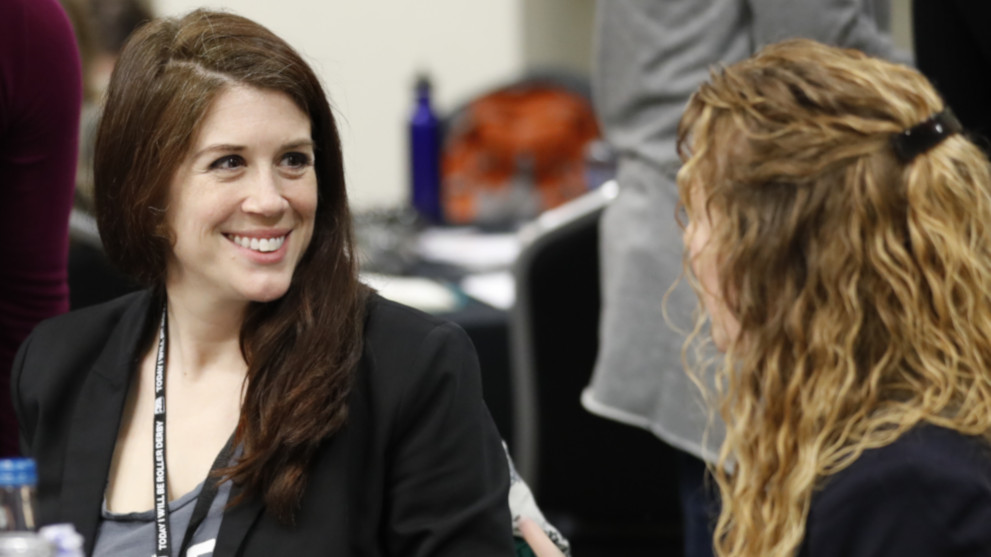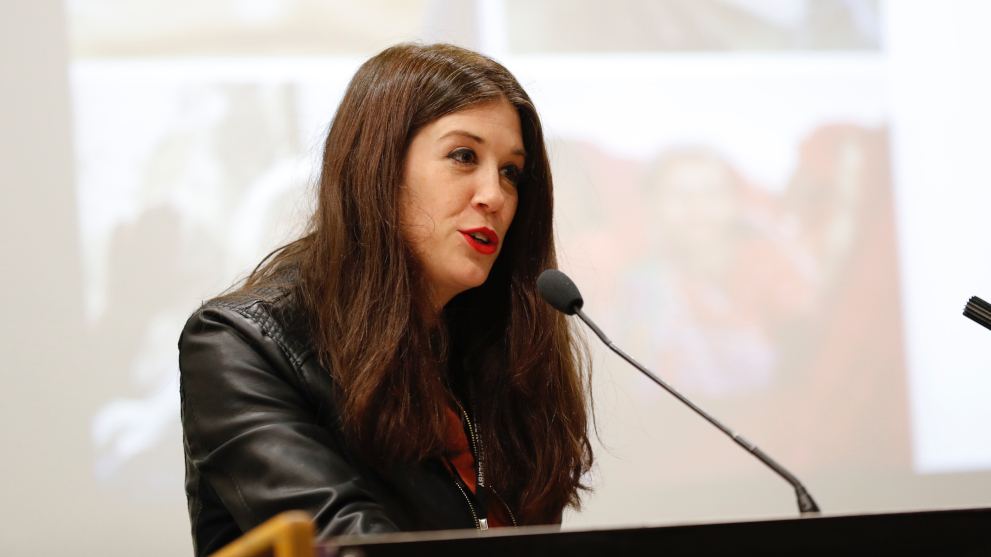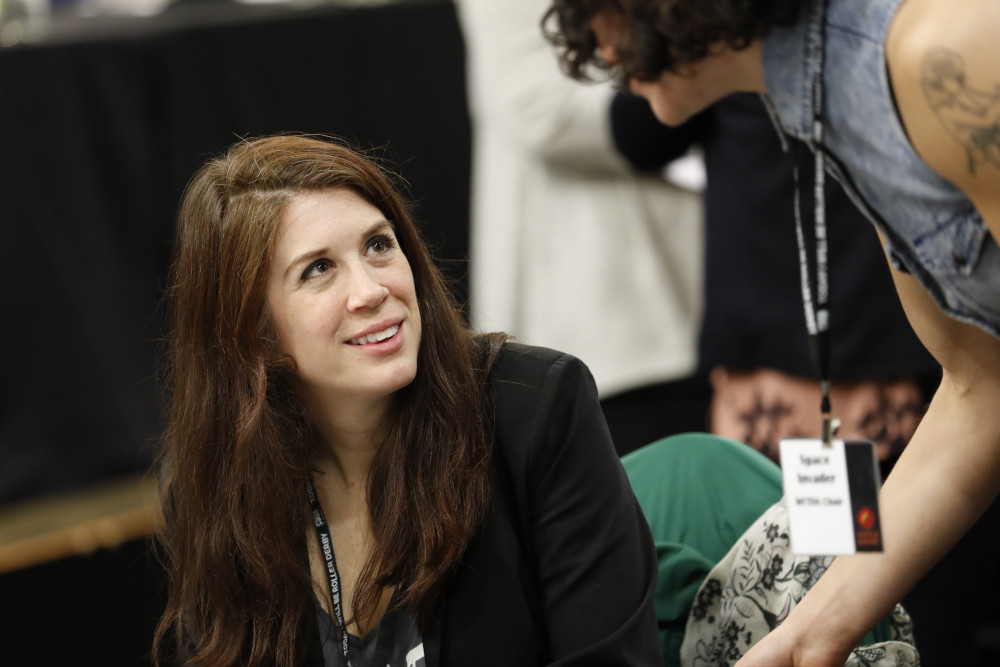
Erica Vanstone “Double H,” Named Executive Director of the WFTDA
The WFTDA is excited to announce that Erica Vanstone “Double H” has been named Executive Director after serving as interim Executive Director for over a year. Erica has been an integral part of the WFTDA since 2010, when she guided the development of WFTDA.tv using her film-making experience to bring roller derby to anyone with an internet connection.
Erica earned a Master’s of Science in Sports Business from Temple University, which has helped her shape the WFTDA vision for transformation as it continues its mission to improve and grow the sport of roller derby and its service to the derby community.
“Erica is dedicated to making the WFTDA and our member organizations as financially stable and equitable as possible, and has been working with the Board on a multi-year strategic plan to share with membership,” said WFTDA President Master Blaster. “Our mission requires self reflection and integrity. The scope of our endeavors meant hiring a person versed in non-profit management, insurance, global competition politics, and athletic development. The ease and attention with which Erica has dedicated herself to this challenge has been exemplary.”
Read on to get to know a little more about Erica.

Congratulations on being named Executive Director of the WFTDA! What goals do you hope to achieve for the WFTDA in this role?
The WFTDA, and roller derby in general, is going through a much-needed transition right now, and becoming more inclusive every day. I have spent a lot of time this past year taking a good look at myself and the organization, to see where our biases are and how we’re continuing to marginalize others, or encourage systemic oppression. That marginalization can be based on race or gender, socioeconomic status, or even on levels of participation in the sport. There can be many barriers to joining the roller derby community. What I think I bring is a desire for change, and to help others step forward and ask for changes they want to see.
What’s first on your to-do list?
Of particular focus in the next few months for me is reinvesting in our WFTDA infrastructure and looking for ways to increase stability and equity. We have grown so quickly over the last few years that we haven’t been able to properly support our volunteers, board, and staff the way they’ve needed. We run the WFTDA as though there are only 200 member organizations and we now have 470. We need to figure out what sustainable growth looks like.
We need our membership to reinvest in us, too. The WFTDA was founded on democratic principles, but democracy often slips when things get hard. I am committed to having the difficult conversations that are necessary to stop that cycle.
Beyond that, I am also really excited for some of the other changes we’re making in the near future, too. We’re building our resources so that we can focus on serving more members, but also acknowledging our fans—the folks who always seem to get left out of the conversation. You may have noticed our rad Twitch coverage, and that is a partial step towards more freedom from pay-per-view that’s necessary for the growth of our sport. We have changes coming that folks have wanted for a while, but since we’re also balancing financial sustainability, we’re taking the time to make thoughtful, well-planned choices.

Where do you see the sport heading?
Aside from our key focus this year on cultural change, we are thinking critically about our structure. As a 501(c)(3) non-profit organization based in the US, we’re bound by US amateur sports law which has been both freeing and challenging. Remaining free from corporate investment has kept us small but we have the freedom and ability to commit to being authentic to who we want to be.
We have contemplated a world where there’s a version of the sport that’s not amateur, and what those pathways or partnerships might look like. Some folks talk about getting roller derby into the Olympics. Unfortunately, they aren’t fully aware of what those competitive pathways really stand for. Last month, the US Women’s Soccer Team filed a suit against US Soccer for gender discrimination, particularly in broadcast contract negotiations and other revenue. Women in US Gymnastics have been physically abused for decades. Those pathways adhere to World Anti-Doping Agency regulations, which have been notoriously discriminatory to transgender athletes and are horribly invasive.
We want to make sure that our growth, if it is to include non-amateur pathways, sustains safe, inclusive, and fair practices.
We are looking for like-minded partnerships and pathways. Some folks see our work with ESPN as a mistake, for example, but I believe it was an opportunity to gather much-needed information about how members are treated in sports media, and how we need to keep pushing our partners to make better choices. It’s a pretty big deal that we got a sports network to activate its LGBTQ+ council to review concerns, and if it made it easier for another sport to get the same considerations next time around, that’s winning.
Otherwise, our work with Chicks in Bowls this year has been particular meaningful, and looking for ways to share resources with other types of quad skating will widen our circle of partners, and offer us new opportunities.